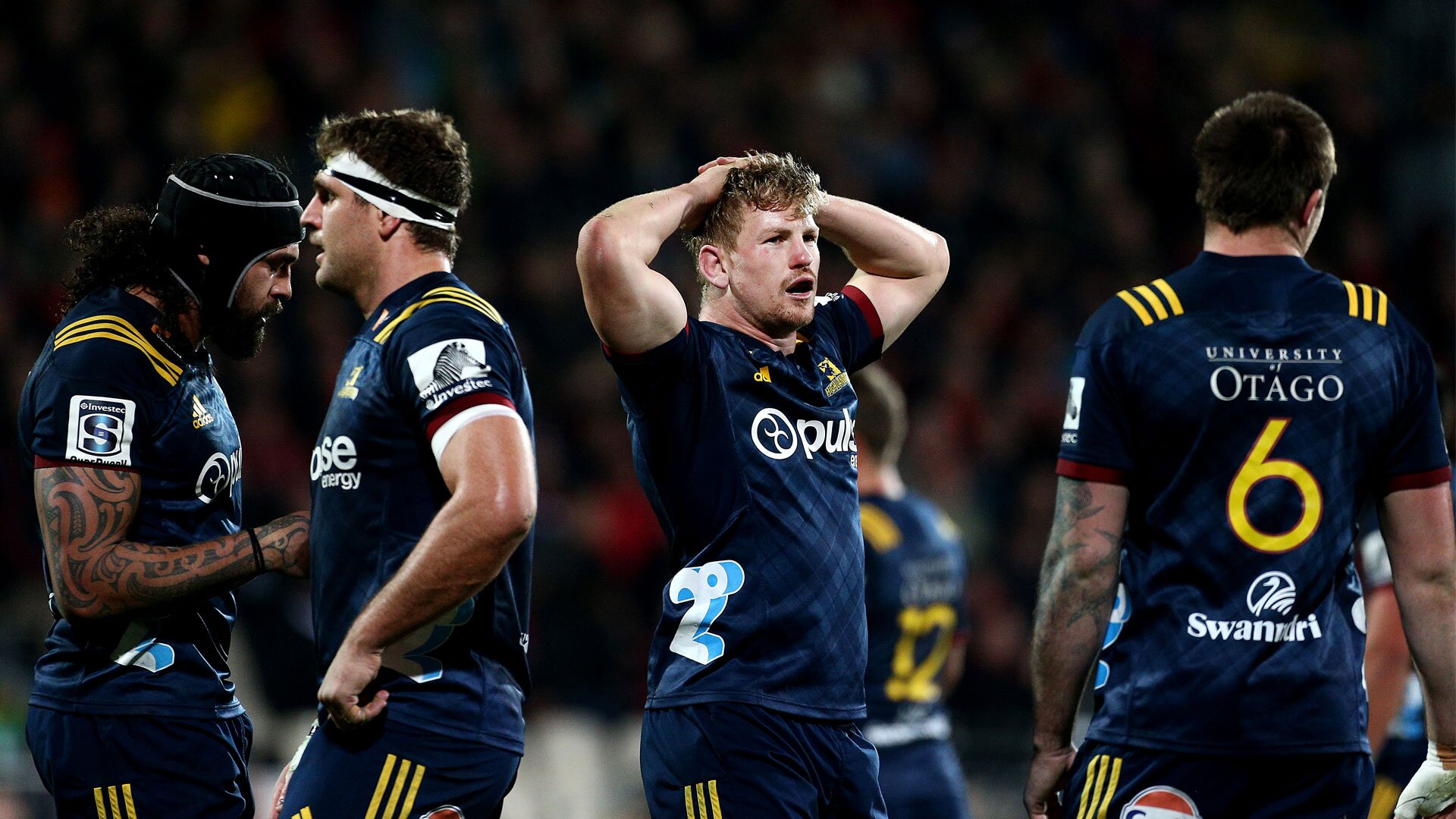Eight qualifiers undermines the quality of the Super Rugby finals

Friday night’s fixture between the Crusaders and the Highlanders saw Super Rugby’s top seed take on the eighth ranked team in the competition.
The Highlanders snuck into the finals by the skin of their teeth on the back of a bonus point victory over a Waratahs side resting Bernard Foley, Michael Hooper, Kurtley Beale and Sekope Kepu.
While many saw Friday’s match as a slim chance for the unfancied Highlanders to possibly get one up over their big brothers (however improbable), there was a certain inevitability in a Crusaders win.
Few would have predicted as a comprehensive a thrashing as what we saw from the Crusaders, however.
Ultimately, however, the result should come as no surprise to anyone thinking with their head instead of their heart.
The Crusaders entered the finals with 11 wins and 2 draws and 2 losses (excluding the called off match between them and the Highlanders from earlier in the season).
The Highlanders had 6 wins, 2 draws and 7 losses to their name (not including the abandoned fixture). Already there’s a stark contrast between the two teams’ performances from throughout the season.
Trawl through the Highlanders’ victories, however, and you start to wonder what the southerners were even doing in the playoffs in the first place.
Four of their six wins came against the bottom four teams in the competition (and, again, the Waratahs were also resting their best players) while their other two successes were against the underperforming Chiefs (who entered their match without a goal-kicker) and the Jaguares, who benched their top players but still kept the game within seven points.
While we’ll never know for sure, there’s a good chance that the Highlanders wouldn’t have even made the play-offs if the match against the Crusaders hadn’t been terminated and both teams awarded two competition points.
All in all, the Highlanders’ season might get a pass simply on the basis of the team making the quarter-finals – but it was ultimately a hugely disappointing season for a franchise that will now lose a trove of their best and most experienced players.
How the Highlanders qualified for the finals basically comes down to the fact that they were the most consistent of the inconsistent teams – which isn’t really a grand achievement.
This, of course, begs the question of why Super Rugby even has eight teams make the sudden death stages of the tournament at all.
When there were 18 teams competing, it made a lot more sense. Now, however, over half the sides participate in the knockout rounds, which means the bar for qualifying is exceptionally low.
The original Super 12 and Super 14 competitions saw the top four sides playing finals football. When Super Rugby expanded to 15 teams in 2011, the top six qualified (with the two highest rank teams receiving a bye in the first week of the finals). That same approach will be adopted in 2021 when the Sunwolves are culled from Super Rugby.
The expansion to 18 teams in 2016 introduced the present quarter-final set up – but for whatever reason was not dropped when the Kings, Cheetahs and Western Force received the chop last year.
The cynics will say that it was an oversight on the organisers’ behalf. The even more cynical will say that the organisers didn’t want more extreme situations arising than what occurred in 2017, when the Brumbies qualified for the quarter-finals even though they were only the ninth best performing side of the year.
Imagine an outcome where the top Australia side, who are gifted a spot in the playoffs, finished ninth but still earned a place in the top six. This shouldn’t pose a problem in the future once conferences cease to exist from 2021, but it could have been a very real concern for SANZAAR, given the reservations the wider public have about Super Rugby’s integrity.
For a season that has regularly underwhelmed, the finals are a breath of fresh air; the top teams duking it out to be crowned Super Rugby champion. Unfortunately, the eight-team structure means that it’s not just the good teams going hammer and tongs at one another – it’s the ‘best teams, including some sides who haven’t shown enough to validate their place in the sudden death rounds of 2019. The same system will be retained next year – hopefully 2020’s finalists prove themselves throughout the season more so than this year’s crop.















